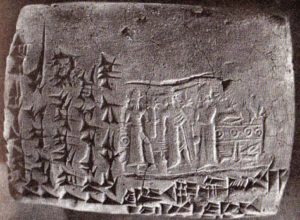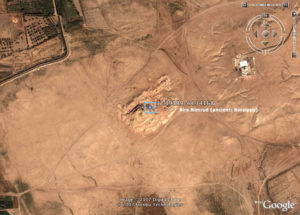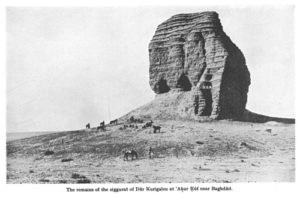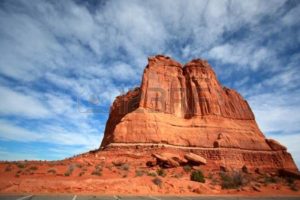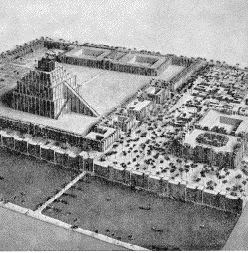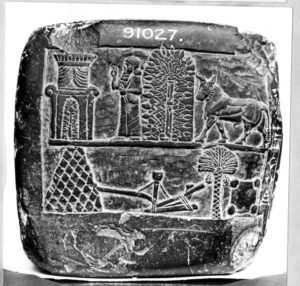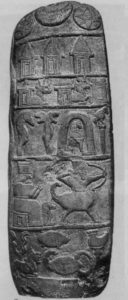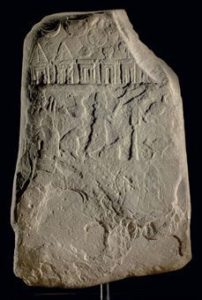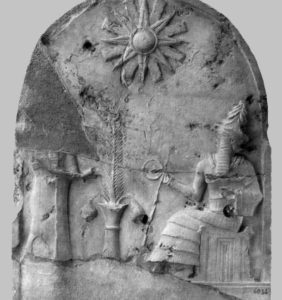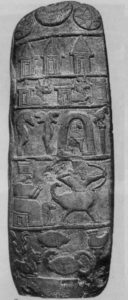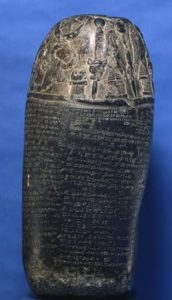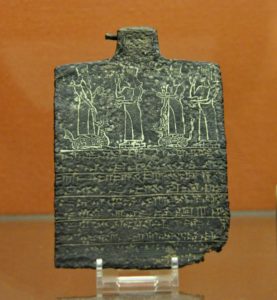http://oracc.museum.upenn.edu
(Texts: All Artifacts, Color Coding, & Writings in Bold Type With Italics Inside Parenthesis, are Added by Editor R. Brown, not the Authors, Translators, or Publishers!)
(gods in blue…mixed-breed demigods in teal)
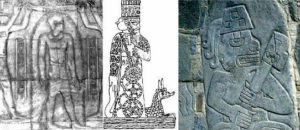 (Marduk with 2 left hands, present in many cultures)
(Marduk with 2 left hands, present in many cultures)
The praise of [… who]se (the god Marduk’s) might (is) over the world forever,
[Who]se anger [is grievous, but who]se [rele]nting is sweet, glorious for praise.
(He is the one) in whose power it is to make (a region) desolate and to resettle (it),
(and who) shows future people how to watch for his sign.
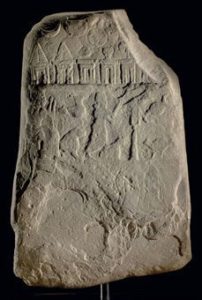 (faded Babylonian King Nebuchadnezzar I & ziggurat symbols)
(faded Babylonian King Nebuchadnezzar I & ziggurat symbols)
(With regard to) Nebuc[hadnezzar], king [of Babylon],
who administers correctly all the cult centres (and) confirms the regular offerings,
He (Marduk) made [his] wisdom splendid, extolled his power and made him supreme;
He made [his …] great [(…)] and exalted his destined greatness.
Nebucha[dnezzar], king of Babylon, who administers correctly all the cult centres (and) confirms the regular offerings,
Distant descendant of kingship, (mixed-breed) seed preserved (inter-marriages) since before the flood,
Offspring of (giant mixed-breed descendant) Enmedura[nki], king of Sippar,
who set up the pure bowl (and) took up the cedar-wood,
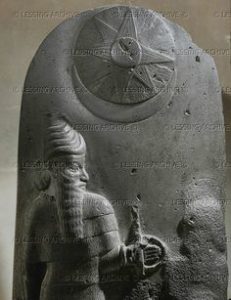 (giant Utu & mixed-breed king)
(giant Utu & mixed-breed king) 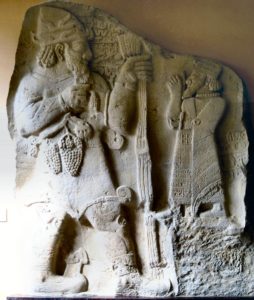 (giant Adad & mixed-breed king)
(giant Adad & mixed-breed king)
Who sat in the presence of the gods Šamaš (Shamash / Utu) and Adad, the divine judges,
Foremost son [of Ninurta-nādin]-šumi, the just king (and) true shepherd, who makes the foundations of the land firm,
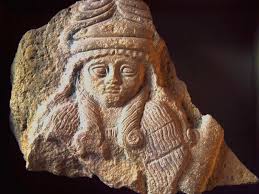 (King Anu’s daughter Bau / Gula, “of ancient stock”)
(King Anu’s daughter Bau / Gula, “of ancient stock”)
Principal support of the god Adad and the goddess Gula (Bau), the supreme gods, scion of Nippur, one of ancient stock,
First attendant of the goddess Šuzianna, favourite sister of (the god) Anšar (unidentified),
The one chosen by the gods Anu and Dagan, (and) selected by the steadfast hearts of the great gods, I —
At that time, in the reign of a previous king, the portents changed.
Good departed and evil was constant.
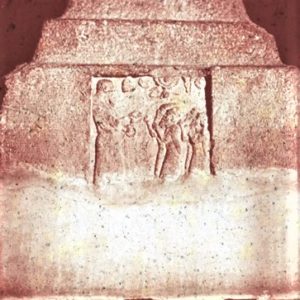 (giant god Marduk & mixed-breed Babylonian king, etc.)
(giant god Marduk & mixed-breed Babylonian king, etc.)
The lord (Marduk) became angry and (full of) wrath.
He commanded and the land was abandoned by its gods.
The thinking of its people changed; they were incited to treachery.
The guardians of peace became angry and went up to the dome of heaven; the protective spirit of justice stood aside.
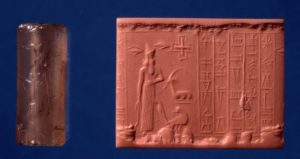 (Marduk & animals)
(Marduk & animals)
The god …, who guards living creatures, abandoned the people; they all became like those who have no god.
Evil demons filled the land; merciless namtaru-demons entered the cult centres.
The land diminished; its thinking changed.
(With regard to) the wicked Elamite, who did not esteem its treasures, […] his battle (and) his attack were swift.
He laid waste the settlements (and) turned (the land) into a desert.
He carried off the gods (and) turned the sanctuaries into ruins.
The god Marduk, king of the gods, who determines the fates, […] the lands, observed everything.
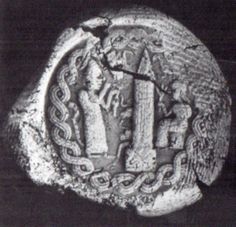 (Marduk & spouse Sarpanit with war rocket)
(Marduk & spouse Sarpanit with war rocket)
When the lord (Marduk) is angry, the Igīgū (Igigi, aliens under Marduk, space truckers of needed cargo carried from Earth to Mars way-station, to home planet Nibiru, & back)
gods in heaven cannot endure his arrogance.
His fearsome splendour is terrifying; at his angry look no man can stand.
The earth did not support his tread nor […]; at his roaring the seas are agitated.
The rocky mountains did not sustain his foot-step; the gods of the universe (Igigi on Mars) are submissive to him.
Things of every kind are entrusted to his control.
[(…) When] he has become angry, who can appease him?
[…] who learned […] him and see his skilful (sic) work […] himself […] the Enlil of the gods,
the capable, […] the I[gīgū gods …], judicious prince,
[…] who in […] adorned with awe-inspiring radiance, seated in awesome splendour,
The migh[ty one … who]se lordship excels.
Catch-line on ex. 1 (line 64 of exemplar)
(His) skilfulness [… let me pra]ise …
Colophon on ex. 1 (lines 65–68 of exemplar)
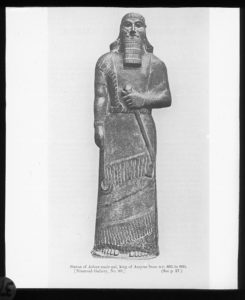 (giant mixed-breed Assyrian King Ashurbanipal)
(giant mixed-breed Assyrian King Ashurbanipal)
First tablet [(…) Palace of Ashurbanipal, king of the world, king of Assyria,
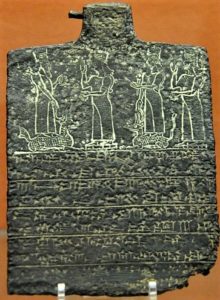 (Marduk & Inanna,with Nabu & spouse Tashmetu / Nanaya)
(Marduk & Inanna,with Nabu & spouse Tashmetu / Nanaya)
the one] on whom [the god Nabû] and the goddess Tašmētu (Nabu’s spouse) bestowed broad understanding,
[who] has [sharp eyes (and who learned) the highest level of scribal art],
that skill [which] no one [among the kings who had prec]eded me had learned.
I have written [on tablets], checked (and) collated [everything pertaining to cuneiform signs],
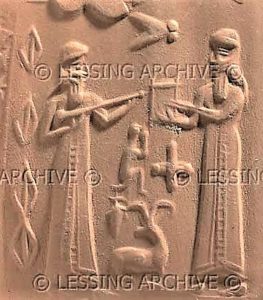 (son & scribe Nabu before Marduk, patron god of Babylon)
(son & scribe Nabu before Marduk, patron god of Babylon)
the art [of the god Nabû].
I set (them) up in my palace so that [they might be seen and read to me].
[…] […] the Igīgū gods […] […] is broad […] […] front […]
… men[tion] of [whom] is pleasant […] … who to the limit(s) of heaven and nether[world …]
Who makes opposing forces agree, … […]
The holy god, who alone is splen[did …]
The merciful, who preserves the weak […]
No translation warranted.
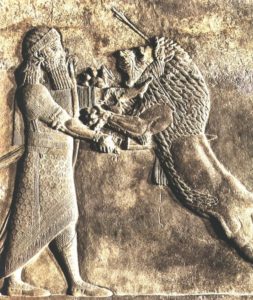 (Ashurbanipal, bigger & stronger than a full grown lion)
(Ashurbanipal, bigger & stronger than a full grown lion)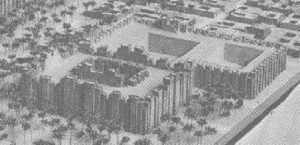 (private motel-residences for visiting gods in Babylon)
(private motel-residences for visiting gods in Babylon) 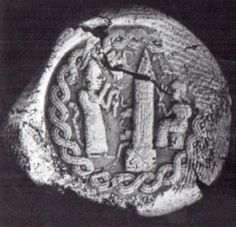 (Marduk, rocket, & spouse Sarpanit in Babylon)
(Marduk, rocket, & spouse Sarpanit in Babylon)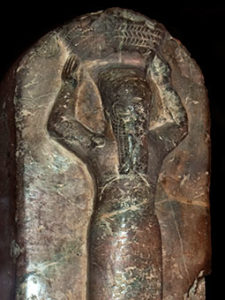 (Samas-suma-ukin, subservient King of Babylon)
(Samas-suma-ukin, subservient King of Babylon) (Ninmah / Ninhursag, Enki’s twin sister-lover)
(Ninmah / Ninhursag, Enki’s twin sister-lover)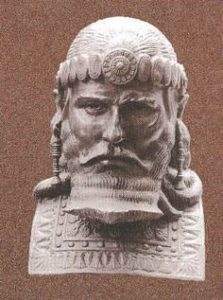
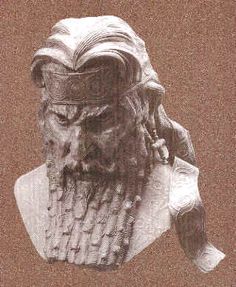 (
(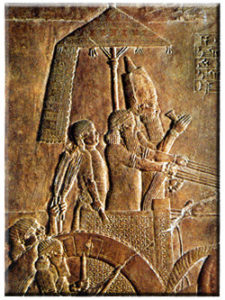
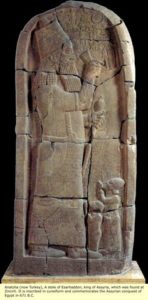
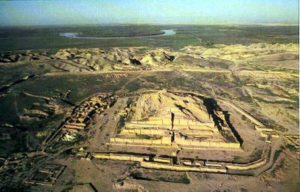
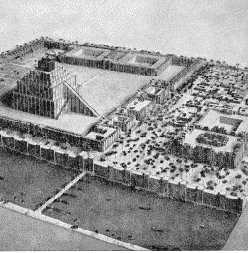
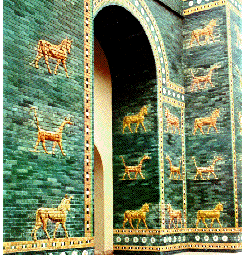
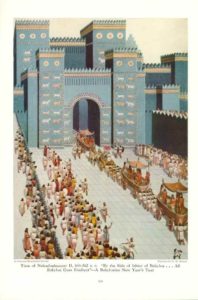
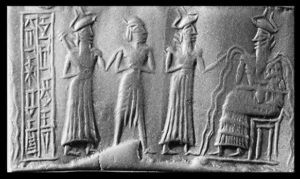
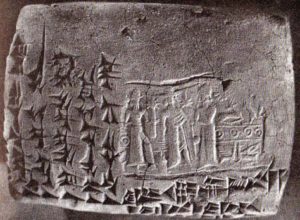
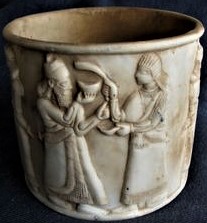
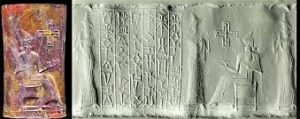
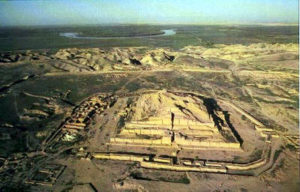
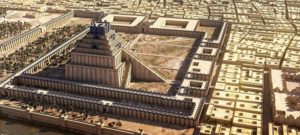

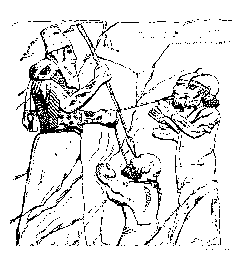 (
(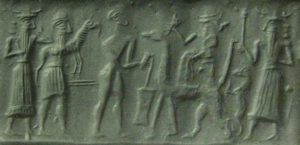
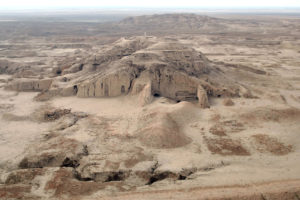
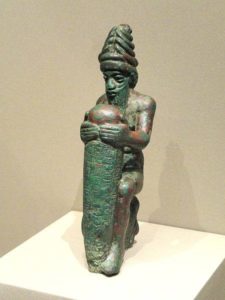 (
(

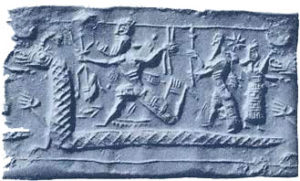
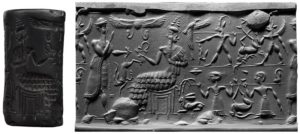
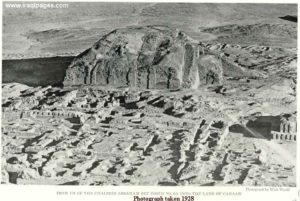
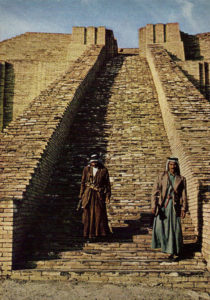
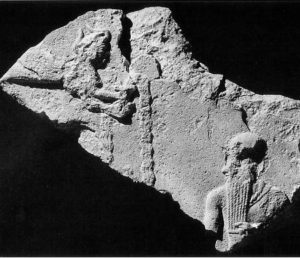
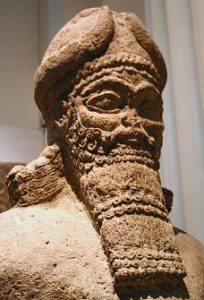
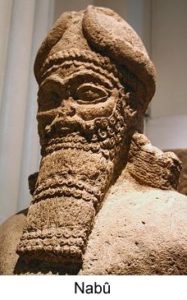 (
(